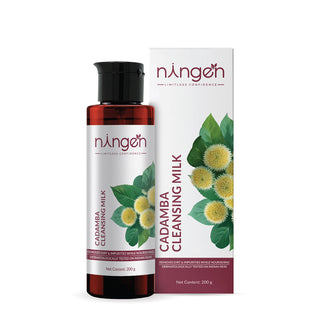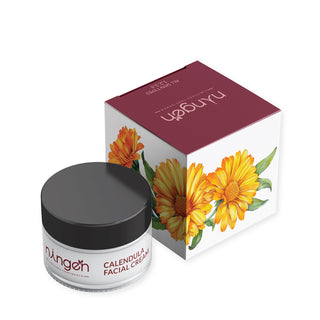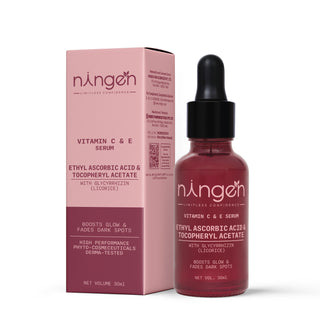“Beautiful skin starts with great skincare”.
Caring for your face skin is crucial for maintaining a healthy and radiant complexion.
Your face is often the first thing people notice about you, and a good skincare routine can make a world of difference. Whether you're dealing with dryness, acne, or the signs of aging, understanding how to care for your face properly can help you achieve the glowing skin you've always wanted. This comprehensive guide covers everything from basic daily habits to advanced skincare tips, ensuring you have all the information you need to keep your skin looking its best. Let's dive in and explore How To Take Care Of Face Skin!
In This Article;
- Why is Skincare Important For The Face?
- How To Take Care Of Face Skin: Establish a skincare routine
- Common Issues With Facial Skin
- Why Identifying Your Skin Type is Important?
- How To Take Care Of Face Skin: Skin Tips by Dermatologists
- Preventing and Treating Specific Skin Concerns
- Lifestyle Factors That Affect Facial Skin
- The Bottom Line
- TL;DR(Too Long; Didn't Read)
- Frequently Asked Questions
Why is Skincare Important For The Face?
Taking care of your facial skin is crucial for overall health and well-being, as the face is constantly exposed to environmental stressors like pollutants, UV rays, and extreme temperatures. Adequate skincare protects against damage, prevents premature aging, and boosts confidence. A daily skincare routine maintains hydration, supports a radiant complexion, and manages skin conditions like acne and eczema. By cleansing, moisturizing, and protecting your skin regularly, you not only improve its current condition but also invest in its long-term health. Your skin is with you for life; caring for your face is an investment in your future self.
How To Take Care Of Face Skin: Establish a skincare routine
A regular skincare routine is crucial for maintaining clear and healthy skin. To create an effective regimen, you should consider your skin type, concerns, and personal preferences. Consistency is key; following the same steps every morning and evening can greatly improve your skin's appearance and texture over time. Begin with the simple steps of cleansing, exfoliating, toning, moisturizing, and applying sunscreen. As your skin adapts, you can incorporate additional treatments suited to your specific needs.
Cleansing
Cleansing is the cornerstone of any skincare routine. It removes dirt, oil, and makeup, and preps your skin for subsequent products. For optimal results:
- Choose the right cleanser: Gel-based for oily skin, cream or lotion for dry, and micellar water or oil for sensitive or acne-prone skin.
- Be gentle: Use lukewarm water and avoid harsh scrubbing.
- Frequency: Cleanse twice daily, in the morning to remove sweat and oils that accumulate overnight, and in the evening to clear makeup and pollutants.
Exfoliating
Exfoliating sloughs off dead skin cells, promoting cell turnover and revealing fresher, smoother skin. However, it's important to not overdo it:
- Select an appropriate exfoliator: Chemical (like AHAs and BHAs) for a deep clean, or physical (like scrubs) for more immediate results.
- Limit exfoliation: Once or twice a week is sufficient for most skin types.
- Sensitive skin caution: If you have sensitive skin, opt for gentle exfoliants or consult with a dermatologist.
Toning
Toning balances the pH level of your skin and can help close pores and refresh your skin. When using a toner:
- Pick the right formula: Alcohol-free formulas are preferable, especially for dry or sensitive skin.
- Apply post-cleansing: Use a toner after cleansing to remove any residual impurities and better prepare the skin for moisturizers.
Moisturizing
Moisturizing is vital for all skin types to maintain hydration and protect the skin barrier:
- Choose a suitable moisturizer: Gel-based for oily skin, creamier ones for dry skin, and fragrance-free for sensitive skin.
- Day and night difference: Consider lighter formulas for daytime and heavier ones for nighttime use.
- Apply to damp skin: This helps lock in moisture effectively.
Applying sunscreen
Sunscreen protects your skin from harmful UV rays, which can cause premature aging, tanning on face and increase the risk of skin cancer:
- Broad-spectrum protection: Ensure your sunscreen guards against both UVA and UVB rays.
- SPF 30 or higher: This level of protection is essential, even on cloudy days.
- Reapply regularly: Every two hours or after swimming or sweating for continuous protection.
Common Issues With Facial Skin
Facial skin can experience a variety of issues due to factors like genetics, environmental exposure, lifestyle choices, and overall health. Here are some common facial skin issues and their typical causes:
1. Acne
Causes:
- Hormonal changes (puberty, menstrual cycle, pregnancy)
- Excess oil production
- Clogged pores
- Bacteria
- Diet and stress
Symptoms:
- Pimples
- Blackheads
- Whiteheads
- Cysts
2. Dry Skin
Causes:
- Cold weather
- Low humidity
- Hot showers
- Harsh soaps and detergents
- Skin conditions like eczema
Symptoms:
- Flaking
- Itching
- Rough patches
- Cracks
3. Oily Skin
Causes:
- Genetics
- Hormonal changes
- Humidity and hot weather
Symptoms:
- Shiny complexion
- Enlarged pores
- Frequent acne
4. Sensitive Skin
Causes:
- Allergies
- Skin conditions like rosacea and eczema
- Irritants in skincare products
Symptoms:
- Redness
- Itching
- Burning or stinging
- Dryness
5. Rosacea
Causes:
- Genetics
- Blood vessel issues
- Environmental triggers (sun exposure, spicy foods, alcohol)
Symptoms:
- Redness
- Visible blood vessels
- Bumps and pimples
- Eye irritation
6. Hyperpigmentation
Causes:
- Sun exposure
- Inflammation
- Melasma (often related to hormonal changes)
- Skin injuries
Symptoms:
- Dark spots
- Uneven skin tone
7. Eczema (Atopic Dermatitis)
Causes:
- Genetics
- Immune system dysfunction
- Environmental triggers
Symptoms:
- Red, inflamed skin
- Itching
- Blisters
- Crusty patches
8. Psoriasis
Causes:
- Immune system dysfunction
- Genetics
- Triggers like stress and infections
Symptoms:
- Red patches with silvery scales
- Itching
- Dry, cracked skin
9. Aging Skin
Causes:
- Natural aging process
- Sun exposure
- Lifestyle factors (smoking, diet)
Symptoms:
- Wrinkles
- Fine lines
- Age spots
- Sagging
10. Sun Damage
Causes:
- UV radiation exposure
Symptoms:
- Sunburn
- Hyperpigmentation
- Ta
- Wrinkles
- Increased risk of skin cancer
11. Dermatitis
Types and Causes:
- Contact dermatitis: Reaction to irritants or allergens
- Seborrheic dermatitis: Overactive sebaceous glands, yeast overgrowth
Symptoms:
- Red rash
- Itching
- Flaking (seborrheic dermatitis)
Why Identifying Your Skin Type is Important?
Identifying your skin type is crucial for effective skincare because it allows you to choose products and routines that are tailored to your skin's specific needs. Here’s why knowing your skin type is important:
1. Optimized Product Selection
Different skin types have different requirements:
- Oily Skin: Needs lightweight, non-comedogenic products that control oil without clogging pores.
- Dry Skin: Requires rich, hydrating products to replenish moisture and repair the skin barrier.
- Combination Skin: Benefits from products that balance oil in the T-zone and hydrate drier areas.
- Sensitive Skin: Needs gentle, hypoallergenic products to avoid irritation.
- Normal Skin: Generally can tolerate a wider range of products but still benefits from balanced care.
2. Effective Treatment of Skin Concerns
Knowing your skin type helps in addressing specific concerns more effectively:
- Acne-Prone Skin: Requires products with ingredients like salicylic acid or benzoyl peroxide to combat breakouts.
- Aging Skin: Benefits from products with anti-aging ingredients such as retinoids and peptides.
- Pigmented Skin: Needs products with brightening agents like vitamin C or niacinamide.
3. Preventing Further Damage
Using the wrong products can exacerbate existing issues:
- Oily Skin: Using overly rich moisturizers can lead to more breakouts.
- Dry Skin: Using harsh cleansers can strip away natural oils, leading to more dryness and irritation.
- Sensitive Skin: Using fragranced or harsh products can trigger redness and inflammation.
4. Cost Efficiency
Selecting the right products for your skin type prevents wasted money on ineffective or damaging products. Tailoring your routine ensures you’re investing in what truly benefits your skin.
5. Improved Skin Health
Appropriate skincare maintains the skin’s natural balance and barrier function, leading to healthier, more resilient skin. This includes maintaining optimal hydration, oil control, and protection from environmental stressors.
6. Personalized Skincare Routine
Understanding your skin type allows you to create a customized routine that fits your unique needs, which is more likely to yield positive results. This includes:
- Cleansing: Choosing the right type of cleanser (gel, cream, foam).
- Moisturizing: Select appropriate moisturizers (light lotions, rich creams).
- Treatments: Incorporating serums and treatments specific to your skin concerns.
How to Identify Your Skin Type?
- Cleanse Your Face: Wash your face with a gentle cleanser and pat dry.
- Wait: Leave your skin bare for about an hour.
- Observe: Look at your skin in the mirror and note how it feels and looks.
- Oily Skin: Shiny appearance, larger pores, prone to acne.
- Dry Skin: Feels tight, looks flaky or rough, small pores.
- Combination Skin: Oily T-zone (forehead, nose, chin), dry or normal elsewhere.
- Normal Skin: Balanced, not too oily or dry, with few imperfections.
- Sensitive Skin: Easily irritated, prone to redness and reactions.
By identifying your skin type, you can take a strategic approach to skincare, ensuring your routine supports your skin’s health and addresses specific concerns effectively.
Note: To know your skin types in detail, click on the link.
How To Take Care Of Face Skin: Skin Tips by Dermatologists
Dermatologists recommend various strategies to maintain healthy facial skin. Here are some expert tips to keep your skin looking its best:
1. Cleanse Gently
- Use a Mild Cleanser: Choose a gentle cleanser suitable for your skin type to remove dirt, oil, and makeup without stripping your skin’s natural oils.
- Avoid Overwashing: Wash your face twice a day (morning and night) to prevent irritation and dryness.
2. Moisturize Daily
- Choose the Right Moisturizer: Use a moisturizer suited to your skin type. For oily skin, opt for a lightweight, non-comedogenic moisturizer. For dry skin, use a thicker, more hydrating product.
- Apply While Damp: Apply moisturizer to slightly damp skin to lock in moisture.
3. Sun Protection
- Use Sunscreen Daily: Apply a broad-spectrum sunscreen with at least SPF 30 every day, even on cloudy days and indoors.
- Reapply as Needed: Reapply every two hours when outdoors and after swimming or sweating.
- Seek Shade: Avoid the sun between 10 a.m. and 4 p.m. when UV rays are strongest. Wear protective clothing, hats, and sunglasses.
4. Hydrate
- Drink Plenty of Water: Staying hydrated is essential for maintaining skin elasticity and overall health.
5. Healthy Diet
- Balanced Nutrition: Eat a diet rich in fruits, vegetables, lean proteins, and healthy fats. Foods high in antioxidants, vitamins, and minerals promote healthy skin.
- Limit Sugar and Dairy: Reducing sugar and dairy intake can help minimize acne flare-ups for some people.
6. Avoid Touching Your Face
- Keep Hands Off: Touching your face can transfer oils, dirt, and bacteria, leading to breakouts and irritation.
7. Don’t Pick or Pop Pimples
- Avoid Picking: Picking at pimples can cause scarring, infection, and more inflammation.
8. Regular Exfoliation
- Gentle Exfoliation: Use a gentle exfoliant to remove dead skin cells and promote cell turnover. Limit to once or twice a week to avoid over-exfoliation.
- Chemical Exfoliants: Consider products with alpha hydroxy acids (AHAs) or beta hydroxy acids (BHAs) for more effective exfoliation.
9. Adequate Sleep
- Get Enough Rest: Aim for 7-9 hours of sleep per night to allow your skin to repair and rejuvenate.
10. Stress Management
- Reduce Stress: Practice stress-relieving activities like yoga, meditation, or hobbies to minimize stress-related skin issues.
11. Avoid Smoking and Limit Alcohol
- No Smoking: Smoking accelerates skin aging and damages collagen and elastin.
- Moderate Alcohol: Excessive alcohol dehydrates the skin and can lead to inflammation and breakouts.
12. Consistent Skincare Routine
- Stick to a Routine: Consistency is key for effective skincare. Follow a daily regimen tailored to your skin type and concerns.
13. Regular Check-Ups
- Dermatologist Visits: Schedule regular visits to a dermatologist for skin check-ups and to address any concerns early.
14. Patch Test New Products
- Test Before Use: Always patch-test new skincare products on a small area of your skin to check for any adverse reactions before applying them to your face.
15. Adapt to Seasonal Changes
- Adjust Your Routine: Change your skincare routine with the seasons. Use more hydrating products in winter and lighter formulas in summer.
Following these dermatologist-approved tips can help maintain healthy, glowing skin and prevent common skin issues.
Reference: https://www.aad.org/public/everyday-care/skin-care-basics/care/skin-care-tips-dermatologists-use
Preventing and Treating Specific Skin Concerns
Preventing and treating specific skin concerns requires understanding their unique causes and effective remedies. Here’s a concise guide to addressing common skin issues:
Wrinkles and Fine Lines
- Prevention: Use antioxidants (vitamin C, E), and broad-spectrum sunscreen.
- Treatment: Apply retinoids to promote collagen, and use hyaluronic acid serums to plump skin.
Hyperpigmentation
- Prevention: Apply high-SPF sunscreen, and wear protective clothing.
- Treatment: Use topical treatments with vitamin C, kojic acid, or glycolic acid. Consider chemical peels or laser therapy with a professional.
Dark Circles
- Prevention: Get enough sleep, and manage allergies.
- Treatment: Use creams with caffeine or peptides, consider fillers or laser therapy for persistent cases.
Acne Scars
- Prevention: Manage acne effectively, avoid picking at spots.
- Treatment: Apply topical retinoids, and consider microdermabrasion, microneedling, or laser treatment for scar reduction.
Redness and Inflammation
- Prevention: Avoid irritants, use hypoallergenic products, and maintain a moisture barrier.
- Treatment: Use anti-inflammatory ingredients like niacinamide or colloidal oatmeal, consider laser therapy or prescription medications for persistent issues.
Consult with a skincare professional for personalized advice before starting new treatments, especially for severe or persistent conditions.
Not sure about your skin concerns?
Click on the link below and take Ningen’s SkinSenseAI skin test to know details about your skin.
https://ningen.com/pages/ningen-skinsensai
Lifestyle Factors That Affect Facial Skin
Lifestyle factors play a significant role in the health and appearance of your facial skin. Here are key lifestyle elements and how they impact your skin:
1. Diet
- Impact: Nutrient-rich diets support healthy skin by providing essential vitamins and minerals. Diets high in sugar and processed foods can cause inflammation and breakouts.
- Tips: Eat a balanced diet rich in fruits, vegetables, lean proteins, and healthy fats. Include foods high in antioxidants, vitamins C and E, and omega-3 fatty acids.
2. Hydration
- Impact: Proper hydration keeps skin plump and improves elasticity. Dehydration can lead to dry, flaky, and dull skin.
- Tips: Drink plenty of water daily. Incorporate water-rich foods like cucumbers, oranges, and strawberries.
3. Sleep
- Impact: Adequate sleep allows the skin to repair and regenerate. Lack of sleep can lead to dark circles, puffiness, and a dull complexion.
- Tips: Aim for 7-9 hours of quality sleep per night. Maintain a regular sleep schedule and create a restful sleeping environment.
4. Stress
- Impact: Chronic stress can trigger skin issues like acne, psoriasis, and eczema due to increased cortisol levels, which lead to inflammation.
- Tips: Practice stress-management techniques such as yoga, meditation, deep breathing, and regular physical exercise.
5. Exercise
- Impact: Regular exercise boosts circulation, delivering more oxygen and nutrients to the skin, and promoting a healthy glow. It also helps reduce stress.
- Tips: Engage in regular physical activities like walking, jogging, yoga, or swimming. Ensure to cleanse your skin after workouts to remove sweat and dirt.
6. Sun Exposure
- Impact: UV radiation from the sun can cause premature aging, and hyperpigmentation, and increase the risk of skin cancer.
- Tips: Wear broad-spectrum sunscreen with at least SPF 30 daily, even on cloudy days. Use protective clothing, hats, and sunglasses. Avoid tanning beds.
7. Smoking
- Impact: Smoking accelerates skin aging, leading to wrinkles and a dull complexion. It also impairs blood flow, reducing skin oxygenation and nutrient supply.
- Tips: Quit smoking to improve overall skin health and appearance. Seek support if needed, such as counseling or nicotine replacement therapy.
8. Alcohol Consumption
- Impact: Excessive alcohol dehydrates the skin, leading to dryness and irritation. It can also exacerbate conditions like rosacea and cause inflammation.
- Tips: Limit alcohol intake and drink water alongside alcoholic beverages to stay hydrated.
9. Skincare Routine
- Impact: A consistent and suitable skincare routine helps maintain skin health and address specific concerns. Using inappropriate products can cause irritation and breakouts.
- Tips: Use products suitable for your skin type. Follow a routine that includes cleansing, moisturizing, and sun protection. Avoid over-exfoliation and harsh products.
10. Environmental Factors
- Impact: Pollution and environmental toxins can damage the skin barrier, leading to premature aging and inflammation.
- Tips: Cleanse your skin thoroughly to remove pollutants. Use antioxidants in your skincare routine to combat free radicals.
11. Hygiene
- Impact: Poor hygiene can lead to clogged pores, breakouts, and infections.
- Tips: Wash your face regularly, especially before bed. Avoid touching your face with dirty hands, and keep your pillowcases and makeup brushes clean.
By understanding and optimizing these lifestyle factors, you can significantly improve the health and appearance of your facial skin.
Discover our meticulously curated collection of recommended skincare, perfect for all skin types.
The Bottom Line
I hope you found this article “How To Take Care Of Face Skin: A Comprehensive Guide” helpful. Taking care of your facial skin is an essential part of maintaining your overall health and confidence. By establishing a consistent skincare routine tailored to your skin type and concerns, you can effectively manage and prevent common skin issues. Incorporating lifestyle changes such as a balanced diet, adequate hydration, and stress management further enhances your skin's health. Remember, your skin is a lifelong companion, and investing in proper care today will yield long-term benefits. Consult with dermatologists for personalized advice, and embrace these practices to achieve a radiant, healthy complexion.
Quick view
Maintaining healthy facial skin involves a consistent skincare routine, understanding your skin type, and making lifestyle changes. Key steps include cleansing, moisturizing, exfoliating, and applying sunscreen. Managing diet, hydration, sleep, stress, and sun exposure also significantly impacts skin health. Consulting dermatologists and adapting your routine to seasonal changes can help address specific skin concerns like acne, wrinkles, hyperpigmentation, and more.
Frequently Asked Questions
Q1. Why is skincare important for the face?
Skincare protects against damage, prevents premature aging, and maintains overall skin health, boosting confidence and appearance.
Q2. What are the basic steps in a skincare routine?
Cleansing, exfoliating, toning, moisturizing, and applying sunscreen are the fundamental steps.
Q3. How often should I cleanse my face?
Cleansing twice daily, in the morning and evening, is recommended to remove dirt, oil, and makeup.
Q4. What is the importance of sunscreen in a skincare routine?
Sunscreen protects against harmful UV rays, preventing premature aging, sun damage, and skin cancer.
Q5. How can I identify my skin type?
Cleanse your face, wait an hour, then observe your skin. It could be oily, dry, combination, normal, or sensitive based on its appearance and feel.
Q6. What lifestyle factors affect facial skin health?
Diet, hydration, sleep, stress, exercise, sun exposure, smoking, and alcohol consumption all impact skin health.
Q7. How can I prevent and treat wrinkles and fine lines?
Use products with antioxidants, apply broad-spectrum sunscreen, and treat with retinoids and hyaluronic acid serums.
Q8. What should I do if I have sensitive skin?
Use gentle, hypoallergenic products, avoid known irritants, and consult a dermatologist for tailored advice.
Q9. How often should I exfoliate my skin?
Exfoliate once or twice a week, depending on your skin type and the type of exfoliant used.
Q10. Why is hydration important for the skin?
Proper hydration keeps skin plump, improves elasticity, and prevents dryness and dullness.











